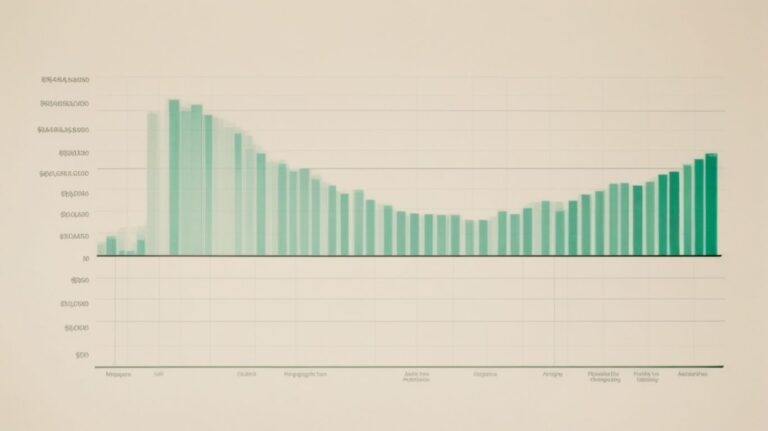Curious about the field of cognitive psychology and the various career paths it offers? From conducting research in academic settings to designing user experiences in the technology industry, the opportunities for cognitive psychologists are diverse and exciting.
In this article, we explore the different career options available in cognitive psychology, the required education and skills for success in this field, and where cognitive psychologists typically work. If you’re interested in understanding the inner workings of the mind and behavior, read on to learn more about this fascinating field.
Contents
- 1 What Is Cognitive Psychology?
- 2 What Are the Career Options in Cognitive Psychology?
- 3 What Are the Required Education and Skills for a Career in Cognitive Psychology?
- 4 Where Do Cognitive Psychologists Work?
- 5 Frequently Asked Questions
- 5.1 What is cognitive psychology and where do professionals in this field work?
- 5.2 What types of job opportunities are available for individuals with a degree in cognitive psychology?
- 5.3 What type of industries employ cognitive psychologists?
- 5.4 What skills are important for a career in cognitive psychology?
- 5.5 How can I prepare for a career in cognitive psychology?
- 5.6 Are there opportunities for advancement in a career in cognitive psychology?
What Is Cognitive Psychology?
Cognitive psychology is a branch of psychology that focuses on studying cognitive processes, human behavior, mental processes, and the complexities of human thought.
This field seeks to analyze how individuals acquire, process, store, and retrieve information. By examining memory, problem-solving, decision-making, and perception, cognitive psychology sheds light on the inner workings of the mind. Understanding these mechanisms helps in comprehending behavior patterns, emotional responses, and learning abilities.
The scientific exploration of brain functions and mental activities provides valuable insights into various aspects of human life. It helps in deciphering the reasons behind human actions, forming the basis for developing interventions, educational methodologies, and therapeutic approaches. Cognitive psychology forms the cornerstone of several modern psychological theories and interventions.
What Are the Career Options in Cognitive Psychology?
Cognitive psychology offers diverse career paths that cater to individuals interested in understanding the human mind and behavior, providing job opportunities with varying salaries and growth potential.
Research positions in cognitive psychology involve conducting experiments, analyzing data, and publishing findings in academic journals. These roles often require a strong background in statistical analysis and research methods.
On the other hand, clinical settings offer opportunities to work directly with patients, using cognitive-behavioral therapy to address mental health issues such as anxiety and depression.
Careers in academia involve teaching, conducting research, and mentoring students in the field of cognitive psychology. The job prospects in this field are promising, with an increasing demand for professionals who can apply cognitive principles to various industries, including healthcare, education, and technology.
Researcher in Academic Settings
Researchers in academic settings play a crucial role in advancing our understanding of cognitive psychology, conducting research studies, and contributing to the knowledge base through academic institutions and graduate school programs.
These professionals are tasked with developing research proposals, designing experiments, collecting and analyzing data, and disseminating their findings through publications and presentations.
Research experience in cognitive psychology is highly valued, as it provides individuals with the necessary skills to pursue graduate education and contribute to the field’s advancement. Collaborating with fellow researchers, mentors, and students is common in university settings, fostering a supportive and intellectually stimulating environment for research endeavors.
Neuropsychologist in Healthcare Settings
Neuropsychologists working in healthcare settings specialize in assessing and treating cognitive disorders, utilizing insights from cognitive psychology and brain science to enhance patient care and treatment outcomes.
They play a crucial role in diagnosing conditions such as Alzheimer’s disease, traumatic brain injuries, and dementia, using a combination of psychological assessments and neuroimaging techniques.
Neuropsychologists also focus on understanding how different areas of the brain contribute to cognitive functions like memory, attention, and language processing.
This knowledge allows them to develop personalized treatment plans that target specific cognitive deficits and improve overall brain health.
Human Factors Specialist in Business or Government Settings
Human factors specialists in business or government settings apply principles from cognitive psychology and industrial-organizational psychology to optimize human performance, usability, and safety in various work environments.
These specialists focus on understanding how humans interact with systems, tools, and technologies in the workplace to create more efficient and safe processes. By studying human behavior, cognition, and physical capabilities, they design solutions that improve productivity and reduce errors. Human factors specialists play a crucial role in shaping work environments that minimize risks and enhance overall effectiveness. They collaborate with engineers, designers, and policymakers to implement changes that prioritize human well-being and performance.
User Experience (UX) Designer in Technology Industry
UX designers in the technology industry leverage insights from cognitive psychology to create intuitive and user-centric products, focusing on enhancing the user experience through interdisciplinary knowledge in cognitive psychology and computer science.
This amalgamation of disciplines allows UX designers to understand how the human mind perceives and interacts with digital interfaces, leading to the development of more user-friendly applications. By incorporating principles of cognitive psychology such as mental models, information processing, and decision-making into the design process, professionals in this field can craft interfaces that align with users’ cognitive abilities and preferences, ultimately improving usability and overall satisfaction.
Educational Psychologist in Schools or Non-Profit Organizations
Educational psychologists working in schools or non-profit organizations utilize knowledge from cognitive psychology to support students, teachers, and educational programs, fostering learning environments that promote cognitive development and student success.
Educational psychologists play a pivotal role in assessing and addressing students’ learning needs, integrating cognitive psychology principles into their practices. By understanding how students process information, retain knowledge, and develop skills, psychologists can tailor interventions and strategies to enhance cognitive development.
These professionals collaborate closely with educators to implement evidence-based teaching methods that align with cognitive psychology theories. By applying research findings on memory, attention, and problem-solving, psychologists help design educational programs that optimize student learning outcomes.
What Are the Required Education and Skills for a Career in Cognitive Psychology?
Entering a career in cognitive psychology requires a solid educational foundation and specific skills, often necessitating graduate school training and specialized education in psychology to excel in this field.
Graduate education is crucial for aspiring cognitive psychologists, as it provides in-depth knowledge of research methods, cognitive neuroscience, and statistical analysis essential for analyzing complex cognitive processes.
Proficiency in critical thinking, problem-solving, and strong communication skills are highly valued in this profession. A comprehensive understanding of cognitive development, memory, perception, and attention is essential to conduct meaningful research and offer effective interventions in various psychological settings.
Continuing education and staying updated with advancements in the field is essential for cognitive psychologists looking to make a significant impact.
Undergraduate Degree in Psychology or Related Field
An undergraduate degree in psychology or a related field serves as a foundational step for individuals aspiring to enter the field of cognitive psychology, offering opportunities for specialization or pursuing a double major to broaden their knowledge base.
Psychology provides a solid understanding of human behavior, cognitive processes, and mental health dynamics, which are crucial in the field of cognitive psychology.
Developing a strong foundation in areas such as experimental psychology, neuroscience, and statistics can equip individuals with the necessary skills to excel in cognitive psychology careers. Specializing in areas like developmental psychology, neuropsychology, or behavioral neuroscience can further enhance expertise and job prospects. Considering a double major in fields like computer science or biology can offer a multidisciplinary approach, enriching problem-solving abilities in cognitive psychology research and practice.
Graduate Degree in Cognitive Psychology or Related Field
Obtaining a graduate degree in cognitive psychology or a related field is essential for those pursuing advanced roles in research, academia, or clinical settings, providing specialized training and research opportunities in graduate school.
Graduate programs in cognitive psychology equip students with advanced knowledge of cognitive processes, research methodologies, and statistical analysis techniques, preparing them for high-demand careers. Through these programs, individuals can delve into specialized areas such as cognitive neuroscience, developmental psychology, or cognitive psychology applied to therapy and intervention.
The hands-on research experience gained during graduate studies allows students to contribute to cutting-edge research projects and collaborate with experienced faculty members and fellow researchers, fostering valuable networks for future career growth.
Strong Analytical and Critical Thinking Skills
Developing strong analytical and critical thinking skills is fundamental for professionals in cognitive psychology, enabling them to investigate complex aspects of the human mind and behavior with precision and insight.
By honing these essential skills, individuals working in cognitive psychology can delve deep into the intricate processes that underlie perception, memory, problem-solving, and decision-making.
- Moreover, analytical skills enable them to identify patterns, relationships, and anomalies in data, fostering the ability to draw valid conclusions and make informed hypotheses.
- On the other hand, critical thinking allows professionals in this field to evaluate information critically, question assumptions, and consider alternative explanations objectively, enhancing the quality of their research and interpretations.
Ability to Conduct and Interpret Research
Professionals in cognitive psychology must possess the ability to conduct and interpret research effectively, leveraging insights from cognitive processes and neuroscience to advance the field’s understanding of human cognition.
Research skills play a crucial role in shaping the trajectory of a cognitive psychology career, allowing individuals to explore complex questions, develop innovative solutions, and contribute meaningfully to the ongoing discourse within the field. By honing their ability to design robust experiments, collect and analyze data meticulously, and draw insightful conclusions, professionals can uncover new perspectives on how the mind operates, revolutionizing our understanding of human cognition.
Where Do Cognitive Psychologists Work?
Cognitive psychologists have diverse work settings, including universities, hospitals, corporations, government agencies, and non-profit organizations, offering varied job opportunities to apply their expertise in cognitive psychology.
Within healthcare settings, cognitive psychologists can work in hospitals, rehabilitation centers, or private practices, focusing on patient assessment, treatment planning, and cognitive therapy.
In government agencies, they may contribute to research projects, policy development, and mental health programs.
In academic environments, cognitive psychologists can engage in teaching, conducting research, and supervising student projects.
Each of these work environments provides unique challenges and opportunities for cognitive psychologists to advance the field and make a difference in people’s lives.
Universities and Research Institutions
Cognitive psychologists in universities and research institutions engage in academic research, teaching, and career development, contributing to the field’s knowledge base and mentoring the next generation of professionals in cognitive psychology.
These professionals play a vital role in conducting experiments, gathering data, and analyzing complex cognitive processes at universities and research centers. Their expertise extends to studying memory, perception, problem-solving, and decision-making to advance our understanding of human behavior.
University settings provide a platform for cognitive psychologists to collaborate with interdisciplinary teams, publish research findings in scholarly journals, and secure grants for innovative projects that shape the future of cognitive psychology.
Hospitals and Healthcare Facilities
Cognitive psychologists working in hospitals and healthcare facilities focus on mental health assessment, counseling, and therapies, applying cognitive psychology principles to enhance patient well-being and treatment outcomes.
In these settings, cognitive psychologists play a crucial role in diagnosing and treating various mental health disorders, such as anxiety, depression, and PTSD. Utilizing a range of assessment tools and techniques, they help patients gain insights into their thoughts, emotions, and behaviors.
Understanding the cognitive processes that underlie mental health conditions enables psychologists to tailor personalized treatment plans for each individual.
Corporations and Businesses
Cognitive psychologists employed in corporations and businesses contribute to human resources, organizational development, and cognitive therapy programs, optimizing employee performance and well-being through cognitive psychology interventions.
These professionals are integral in developing training programs that enhance employee productivity and job satisfaction. By leveraging their understanding of human cognition, cognitive psychologists help organizations design workflows and processes that align with employees’ cognitive abilities, fostering a more efficient and engaging work environment.
In human resources, they play a crucial role in recruitment and selection processes, utilizing their expertise to assess candidates’ cognitive abilities and fit for specific roles within the company. Cognitive psychologists collaborate with management teams to implement strategies for improving communication, problem-solving, and decision-making across all levels of the organization.
Government Agencies
Cognitive psychologists working in government agencies contribute to public policy development, research initiatives, and cognitive process analysis, leveraging their expertise to inform decision-making and enhance government programs.
These professionals play a crucial role in studying how individuals perceive, think, and solve problems in the context of government operations. By applying their knowledge of human cognition, they assist in creating evidence-based policies that are tailored to the needs of the population. Understanding the intricacies of human behavior and decision-making processes, cognitive psychologists offer valuable insights into how policies can be structured to achieve desired outcomes effectively. Through various research methodologies and data analysis techniques, these experts help government agencies evaluate the impact of existing programs and determine areas for improvement.
Non-Profit Organizations
Cognitive psychologists in non-profit organizations engage in community outreach, counseling services, and therapy programs, addressing mental health issues and cognitive well-being through their expertise in cognitive psychology.
These professionals play a crucial role in developing and implementing intervention strategies tailored to the specific needs of individuals in the community. By conducting assessments, creating personalized treatment plans, and offering cognitive-behavioral therapy sessions, they strive to enhance mental health outcomes and facilitate positive behavioral changes. This hands-on approach allows them to directly impact the lives of those struggling with various cognitive challenges, such as learning disabilities, memory issues, and emotional regulation difficulties. Collaborating with other mental health professionals, they ensure comprehensive care and support for those seeking assistance.
Frequently Asked Questions
What is cognitive psychology and where do professionals in this field work?
Cognitive psychology is the study of mental processes such as attention, perception, memory, and decision-making. Professionals in this field commonly work in research settings, academic institutions, and clinical settings.
What types of job opportunities are available for individuals with a degree in cognitive psychology?
Individuals with a degree in cognitive psychology may work as research assistants, data analysts, cognitive therapists, or in various roles in academia such as professors or postdoctoral researchers.
What type of industries employ cognitive psychologists?
Cognitive psychologists can work in a variety of industries, including healthcare, technology, education, government, and consulting. They may also find opportunities in fields such as marketing, human resources, and product design.
What skills are important for a career in cognitive psychology?
Professionals in cognitive psychology should have strong analytical and critical thinking skills, as well as a solid understanding of research methods and statistical analysis. Excellent communication and problem-solving skills are also important for success in this field.
How can I prepare for a career in cognitive psychology?
To prepare for a career in cognitive psychology, it is important to have a solid foundation in psychology, statistics, and research methods. Participating in internships or research projects can also provide valuable experience and help develop skills necessary for this field.
Are there opportunities for advancement in a career in cognitive psychology?
Yes, there are opportunities for advancement in a career in cognitive psychology. With experience and advanced education, professionals may advance to roles such as lead researcher, program director, or department head. They may also have the opportunity to conduct their own independent research or start their own consulting practice.




